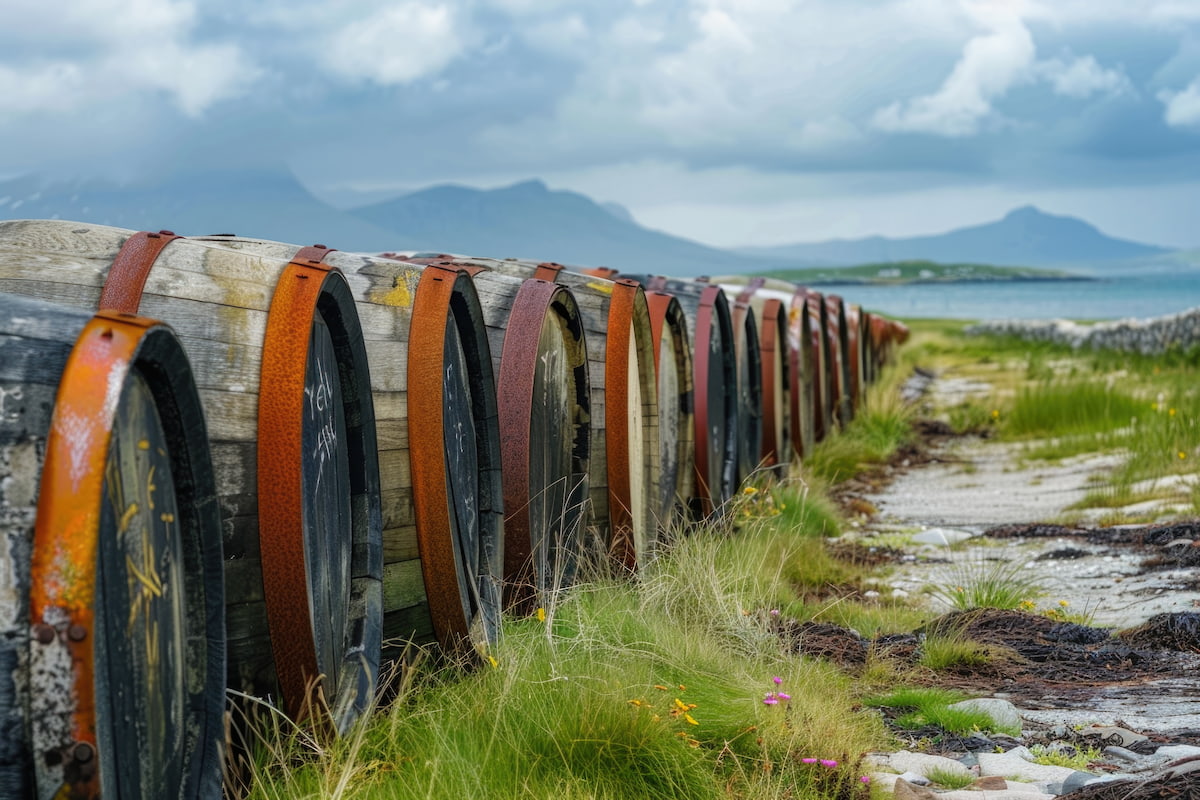When buying a whisky cask, several crucial factors come into play, from cask type and distillery origins to maturation environment and investment potential. This guide helps you navigate these considerations, ensuring your choice aligns with your personal or financial goals, whether for unique flavour exploration or a solid return on investment.
Important things to consider when purchasing a whisky cask
When purchasing a whisky cask, several crucial factors weigh on a customer's mind, each playing a pivotal role in their decision-making process:
- Cask Type and History: Customers often prioritise the type of cask, considering whether it's a first-fill or a refill cask, the previous liquid it held (bourbon, sherry, wine, etc.), and its distillery history or provenance. The cask type significantly influences the flavour profile and character of the whisky, making it a critical consideration. Especially when bottling.
- Distillery and Region: When selecting a whisky cask it is important to consider the distillery and region the whisky is coming from. Whilst there are very localised flavour profiles, whisky styles can vary greatly between distilleries so it is important to consider what you are looking for in terms of flavour and style. There is also a correlation between certain regions and potential value growth or rarity, this is always a wise consideration when looking at longer term maturation.
- Bottle or Sell: A key consideration to have prior to purchasing a whisky cask is what you plan to do with it at the end of your ownership. Do you plan to bottle the whisky to enjoy or sell on, or do you plan to sell on the cask as a whole. This is an important point to think about as sometimes a whisky style that isn't to your preference might be a better option for the potential value growth. However if you plan to bottle, flavour is of course very important.
- Age and Maturation: The age of the whisky in the cask and the anticipated maturation period influence the investment's potential returns and the desired flavour profile. Longer maturation periods often lead to more complex and sought-after whiskies but also require patience and long-term commitment. You don't need to commit but it is good to have an idea of your potential future plans.
- Storage and Insurance:
- Quality and Condition of the Cask: It is often recommended to seek assurances regarding the cask's quality, working with a supplier that has an interest in the whisky quality is a wise caveat. Purchase a cask that you are able to go and visit once owned. Ensuring that the cask is in good condition and free from any defects is crucial to safeguard the whisky's maturation process.
- Maturation Environment: The location where the cask matures, whether it's a traditional warehouse, a coastal environment, or a more controlled climate, can significantly impact the whisky's development. The maturation environment plays a role in the rate of evaporation (angel's share) and the flavours imparted by the localised climate.
- Return on Investment and Future Value: For investors, assessing the potential return on investment and the future value of the whisky is essential. Understanding market trends, the distillery's reputation, and the whisky's ageing potential influences the decision to buy a cask. Advice from your supplier can be invaluable.
- Customisation and Personalisation: Some buyers seek customisation options, such as selecting specific cask sizes or exploring alternative finishes that align with their preferences or market demands. Re-racking to a new cask finish is common practice and can help create an incredibly unique whisky that you had a hand in creating.
- Regulations and Compliance: Compliance with industry standards, legal regulations, and licensing requirements is crucial for buyers considering ownership of a cask. Working with a fully licensed UK based supplier is incredibly important to ensure all of the legal requirements are met.
- Supply and Storage: Consider who you work with to supply your ideal whisky cask, are they a stockist or a broker, do they understand the nuances of the industry and offer regauge information prior to purchase. And where are they going to store your cask, which bonded warehouse, is it a racked warehouse or palletised and do you hold an account yourself or is it held within the accounts of the company.
Each of these factors holds a different level of importance depending on the buyer's intentions—whether it's for investment, personal consumption, or brand development. Ultimately, buyers consider a blend of these factors to make an informed decision about purchasing a whisky cask that aligns with their goals and expectations.
This starts with a initial conversation to understand what you are looking for and answer any questions you might have. Speak to our expert team at info@tailoredspirits.co.uk and we will be happy to guide you.
Bottling Guide
Download our comprehensive bottling guide to learn everything about the bottling process, from cask selection to packaging and final delivery.
Contact
Our Sales Expert
Reach out to our team for personalised advice and more information on our bespoke whisky services. We’ll help tailor the perfect experience for you.


.jpg)


